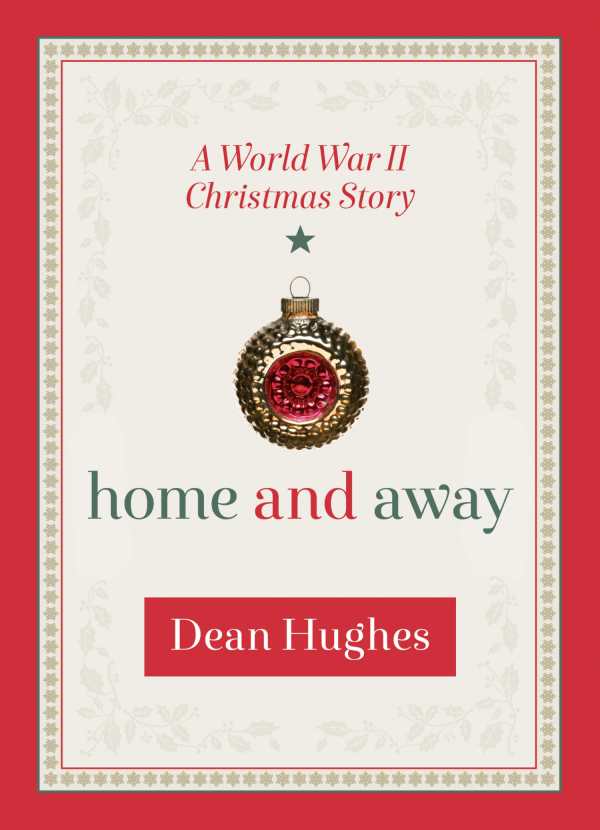Home and Away
This nostalgic story set during WWII reminds us that Christmas can be a season of miracles.
The World War II era still tends to be remembered in a haze of big-band music and men in uniform, crackling radio broadcasts, and loving folks back home—when America was united in a fight against evil and everyone seemed to be on the same team. In his short novel Home and Away: A World War II Christmas Story, Hughes continues with the theme of nostalgic wartime remembrance but adds subtle undertones of family strife and conflict that give his story depth and dimension.
The narrative alternates between the two Hayes brothers: the elder, Glen, and the younger, Dennis. Glen is fighting the Nazis in Europe while Dennis is managing the war at home in Ogden, Utah, trying to balance school, work, and the general stress of being a teenager. Beyond that, Dennis worries about whether he should sign up for active duty when he comes of age next year. The choice is surely patriotic and expected, but he can see how overwrought his parents already are, with one son overseas. Dennis also contemplates the actual idea of soldiering, and how he can’t fathom the thought of shooting someone who has a family “praying for him the same as my family prays for me.”
Beyond the drama of combat, Hughes notes the bleak realities of foxholes, mud, latrines, fatigue, and miserable holiday meals eaten in the cold November rain. Glen is homesick and exhausted, and when the battle around him resumes, he feels like “a vicious animal” is raging through the woods, “reaching for him.”
Back at the Hayes’ house, money is tight, and long-simmering resentments stew along with quiet regrets. There’s also the day-to-day fear of having a telegram arrive with news that Glen has been killed. Hughes remains true to the generally pre-self-help stoicism of the 1940s and doesn’t offer major emotional breakthroughs, but he does include moments of healing and love that can hold a family together. Home and Away reminds us that Christmastime can be a season of miracles, along with the small kindnesses of strangers that should never be taken for granted.
Reviewed by
Meg Nola
Disclosure: This article is not an endorsement, but a review. The publisher of this book provided free copies of the book to have their book reviewed by a professional reviewer. No fee was paid by the publisher for this review. Foreword Reviews only recommends books that we love. Foreword Magazine, Inc. is disclosing this in accordance with the Federal Trade Commission’s 16 CFR, Part 255.

